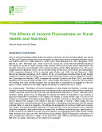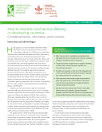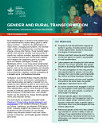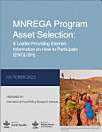Scaling up experiential learning for water management
About this ebook
Farmers, policymakers, donors, and nongovernmental organizations (NGOs) in India have all articulated the need for more effective tools to improve water management and governance. Coordination and effective management of water resources are crucial to sustain agricultural productivity, but so far progress has been disappointing. Technical tools such as crop water budgeting can play an important role in enabling communities to manage their water resources, but unless communities have the knowledge and motivation to use these tools, their application and impacts are limited. To date, attention to the question of how knowledge about collectively available water is translated into effective management through collective action, norms and rules has been insufficient. Blueprint rules introduced in a top-down manner have not changed water users’ behavior. However, there is strong evidence that effective community rules and their enforcement can motivate such behavior. The better these rules fit the social-ecological context and internalized norms, the more effective they will be. Participatory development approaches have addressed these challenges. The key question is how to promote such coordination, rules, and behavior in a participatory way without external imposition and in a low-cost manner that allows largescale implementation.







